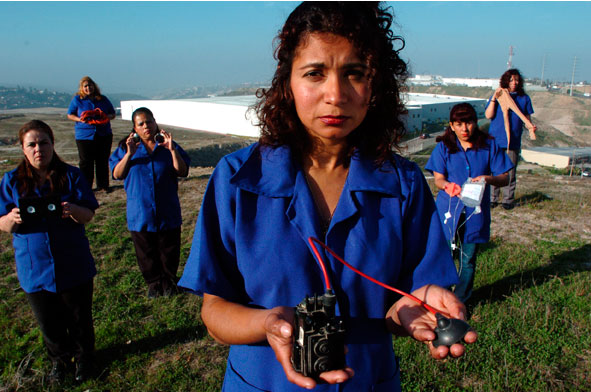
After watching the documentary, Maquilopolis (2006), is clear to see the negative impacts of globalism on the economic and environmental prosperity of the people, particularly the women, of Mexico. The rise of factories at such an amount has caused a dramatic problem for their community. These factories also do not follow good practices to protect the environment or the staff. There was only one thing on the minds of the owners of the factories according to the documentary and that was money! Where could they find cheap labor? Well, the women of a impoverished community. During the ’90s and early 2000s, and even still today, women get paid less hourly compared to men, especially in laborious jobs. What was represented in this documentary was intersectionality. These women factory workers ended up in their position because of the multiple categorizations of discrimination they fell under. First off they were women working jobs society created for men, second, they were from Mexico while the companies they worked for came from other leading countries, therefore, exploiting their indifferences and lastly, these women were poor living in poor neighborhoods and as single mothers. These women were desperate to make any type of money to provide for their children. While neoliberalism has expanded the market and helped make people believe themselves to be independent in more westernized countries, corporations did not take the path of morality when manufacturing these products. What was seen as a marvelous new step for society has now been poisoned by the inconsolable amounts of greed these corporations had for profit. The consequences of this greed have led to the destruction of health for their factory workers and the worker’s children. They have also made a particularly negative impact on the environment by contaminating the air, water, and surrounding grounds of these factories. I hope that the group of activist women in this documentary find a way to completely fix their labor law issues and for the outside participating countries to prohibit unsafe and unfair labor laws. I would like to see more ethically produced materials within westernized communities. Maybe spend some time researching ethical companies that you can support. Here is a list that I found on the top ethical companies of 2022. By supporting ethical businesses, we can help reduce the amount of stories like the women from, Maquilopolis.
Works Cited:
- Gemeš, Nikola. “17 Of the World’s Most Ethical Companies.” GreenCitizen, 19 July 2022, https://greencitizen.com/blog/ethical-companies/.
- “Stream Classic Cinema, Indie Film and Top Documentaries.” Kanopy, https://www.kanopy.com/en/usask/watch/video/116262.